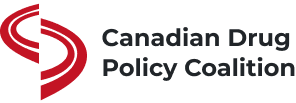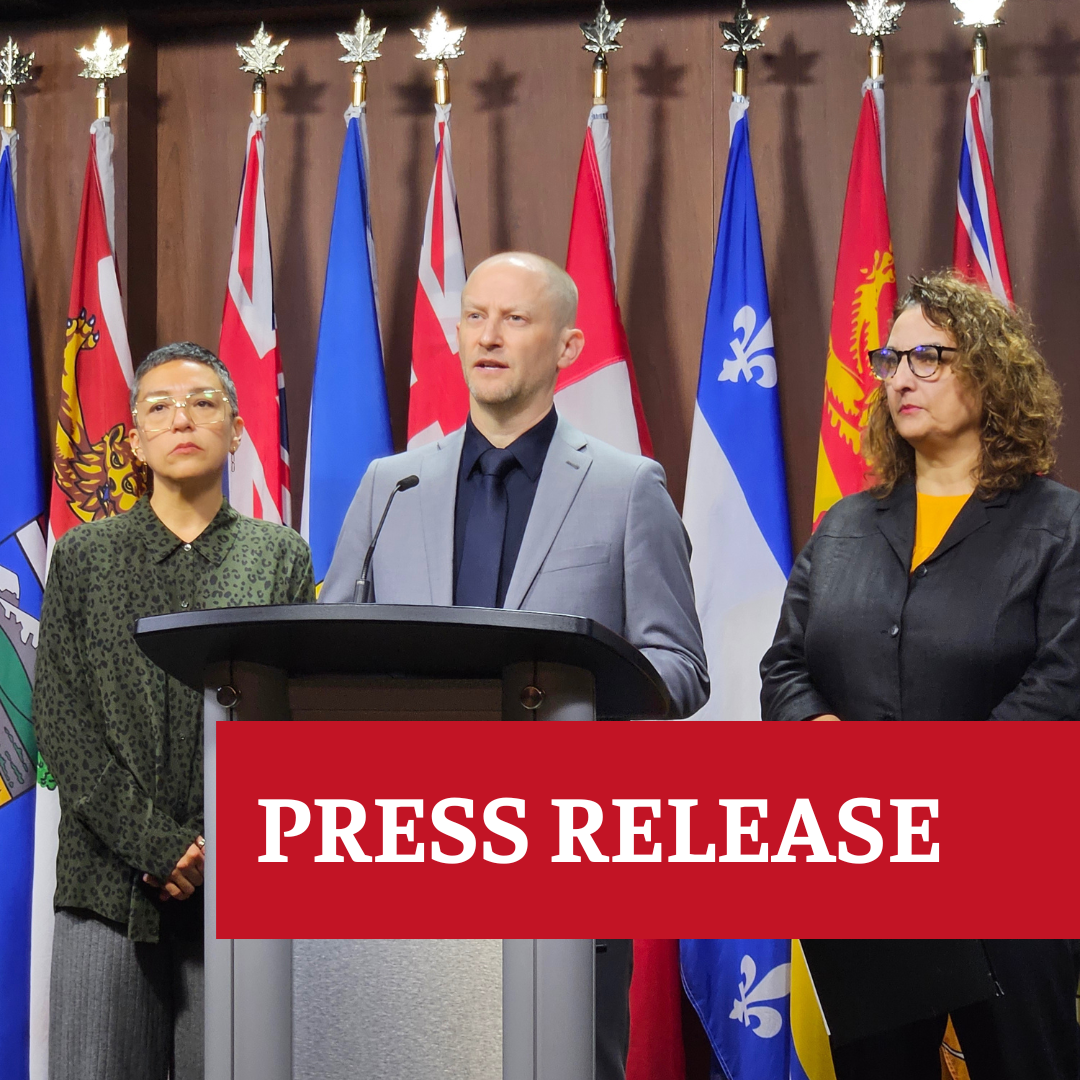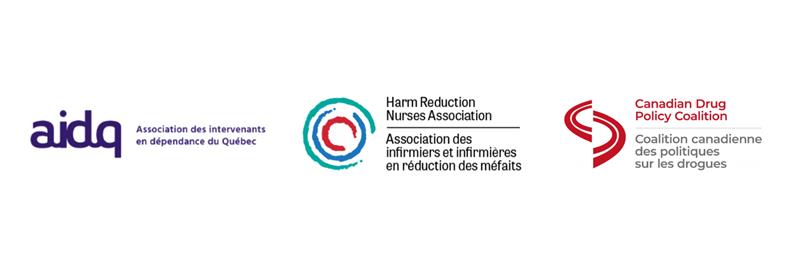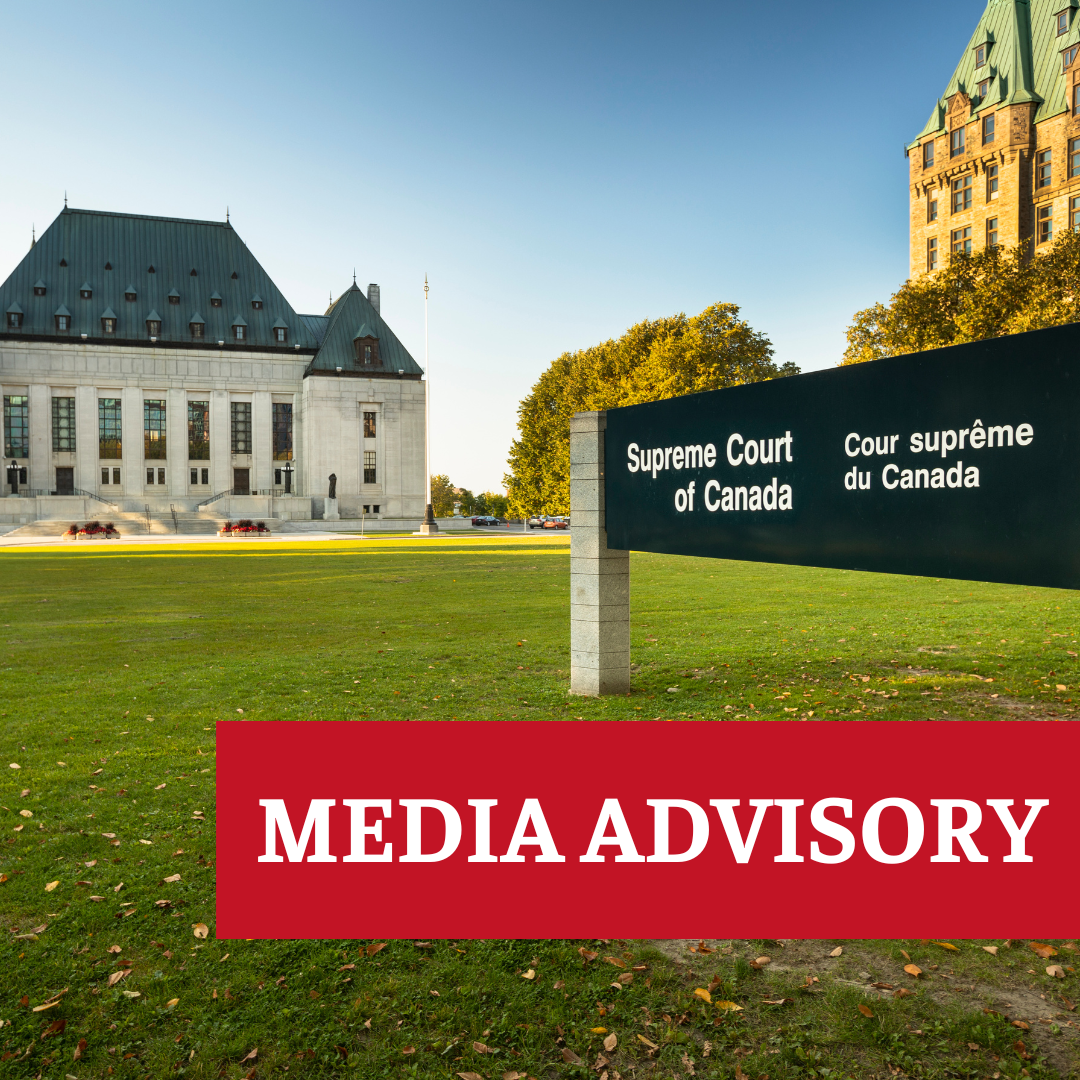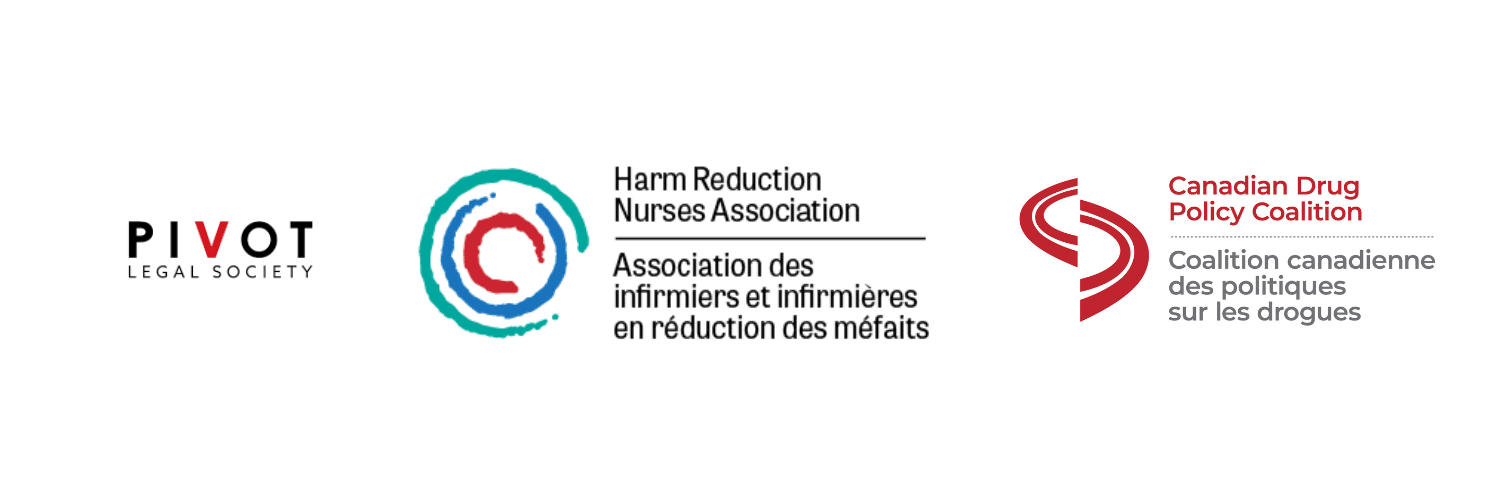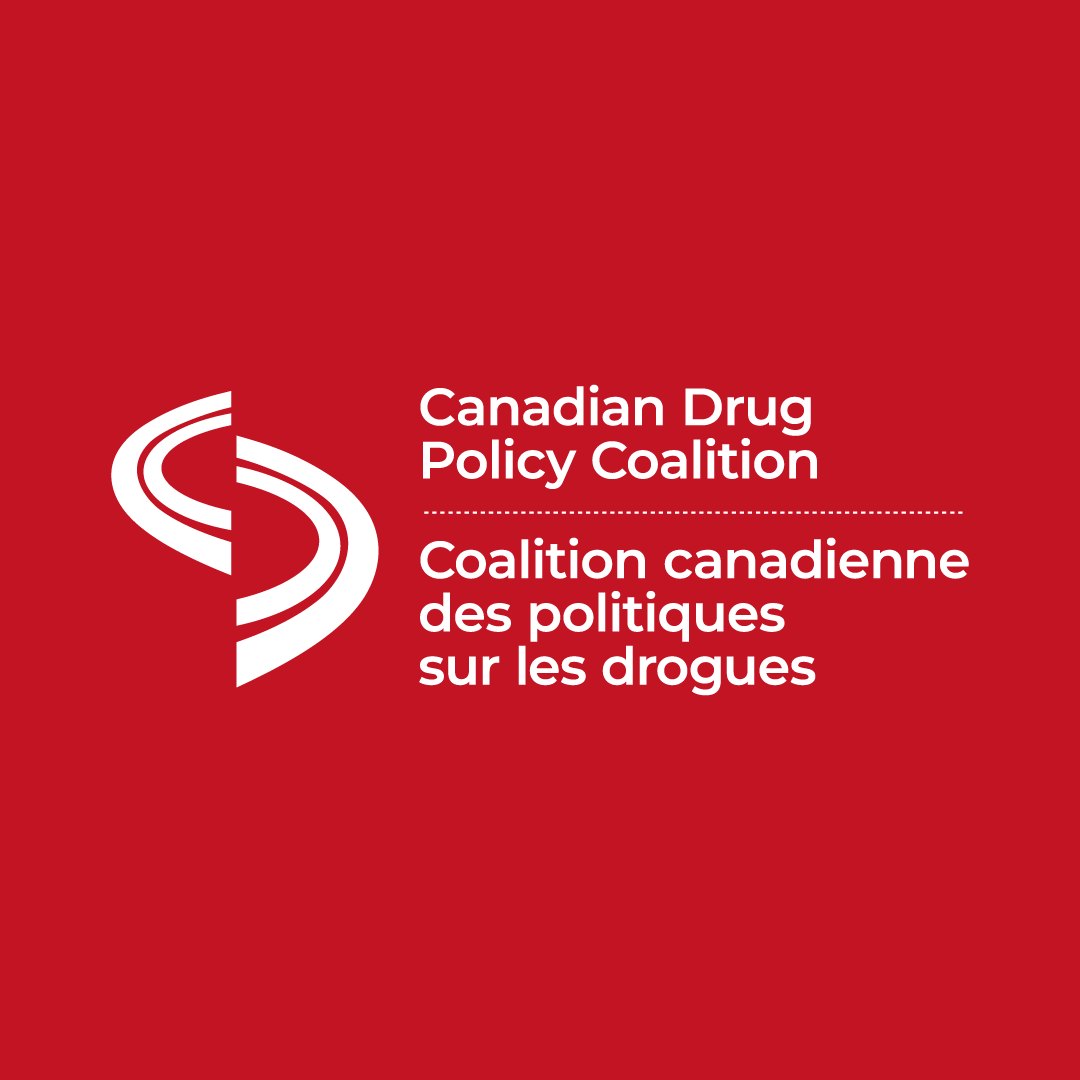Le français suit
FOR IMMEDIATE RELEASE
Blocked From Testifying, Civil Society Groups Urge Withdrawal of Bill C-12 Citing Threats to Human Rights and to Fundamental Justice
OTTAWA, Nov. 24, 2025 – A broad coalition of groups from across Canada is sounding an urgent alarm in advance of a critical parliamentary vote on Bill C-12.
The bill would open the door to discrimination and violations of human rights and due process in Canada’s immigration system, authorize sharing of sensitive personal immigration information, and expand dangerous approaches to drug policy. Yet it is being pushed through parliament with minimal debate while those that will be impacted by its sweeping changes are locked out of the process.
“This deeply concerning and highly controversial legislation will put many refugees in danger, risking their return to persecution in violation of rights protected under the Charter and international law,” said Gauri Sreenivasan, Co-Executive Director of the Canadian Council of Refugees. “And yet the bill is moving at break neck speed through Parliament while those with expertise and lived experience who want to advise on its dangers are shut out of the process. Neither the law nor the public interest is being served.”
The bill will deny many refugees access to fair and independent assessment and full appeal of their claims by the Immigration and Refugee Board because of arbitrary time limits and exclusions. This approach will not streamline Canada’s processing of refugee claims, but will lead to lower quality decisions while shifting backlogs to our already overburdened Federal Courts and to IRCC.
The bill will also compound harm arising from the Canada-US Safe Third Country Agreement, which abandons many refugees to the U.S. immigration system at a time when well documented human rights violations have become the dominant feature of that system.
”Bill C-12 would deny protection to vulnerable people irrespective of changes to their personal circumstances or political conditions back home. So many people like me, who sought safety here and have made lives here, would be shut out by this Bill. This isn’t just policy, it’s people’s lives,” said Tonny Muzira, Co-Founder & Director of Advocacy and Partnerships Centre for Black Development Options Canada. “Canada cannot turn its back on those seeking safety.”
Under Bill C-12, the government will also be able to cancel or suspend immigration documents and applications based on an undefined assessment of the “public interest”. This power grants dangerous discretionary power to the government without any individualized assessment or procedural safeguards.
“The bill sets up open-ended powers with little thought to the consequences and inevitable abuse”, said Louis-Philippe Jannard, of the Table de concertation des organismes au service des personnes réfugiées et immigrantes (TCRI). “We haven’t seen such broad, discretionary powers in our immigration system since the 1970’s, when their abuse led to rampant discrimination and fatal decisions.”
Bill C-12 would also authorize the government to share highly sensitive immigration information with few limitations. This includes changes in gender identity and the status of any refugee claimants, exposing vulnerable people in Canada to severe risk.
“Broad dissemination of sensitive personal information can place migrants and refugees at significant risk of discrimination and persecution in Canada and abroad”, said Tamir Israel, Director of the Canadian Civil Liberties Association’s Privacy, Surveillance and Technology Program. “Despite this significant potential for abuse, Bill C-12 lacks minimum safeguards like the need to ensure information sharing is necessary and proportionate.”
Bill C-12 also doubles down on prohibition-based drug policy that has demonstrably failed to protect public health and safety.
“Instead of funding affordable housing and other health and social supports, Canada is supporting U.S.-led militarized drug enforcement,” said Nick Boyce, from the Canadian Drug Policy Coalition. “If Canada follows this path, it will be complicit in violations of international human rights law.”
In disregard of the dire risks posed by this legislative proposal, the bill has been fast-tracked and received minimal consideration in Parliament. It is scheduled for a final vote by the Standing Committee on Public Safety tomorrow—just three weeks after its study of the bill began.
Despite the highly attenuated timeline, dozens of refugee and migrant groups, human rights groups, labour organizations, health advocacy groups, representatives of the Black community, gender based violence groups, legal professional bodies, drug policy groups and others requested to speak at committee hearings but were denied. They have also submitted briefs expressing concern regarding Bill C-12’s consequences.
These groups were largely absent from committee proceedings and MPs will not have the time to consider the long list of concerns raised by these submissions. In contrast, MPs heard repeatedly from border and policing agencies and officials. The end result is that the voices of those most impacted by Bill C-12 have not been heard.
“MPs and the public should be extremely concerned that the government is fast-tracking legislation that will only multiply the possibility of discrimination, exploitation, and violations of human rights,” said Karen Cocq of the Migrant Rights Network. “ This government got elected promising to reject Trump-style politics, but Bill C-12 is the opposite of that. This bill cannot be fixed, it must be withdrawn.”
– 30 –
Media contact:
Jessica Hannon, Director of Communications
[email protected]
Watch the press conference here.






Images from the Ottawa, ON press conference featuring in-person speakers Nick Boyce, Gauri Sreenivasan and Karen Cocq, and Zoom speakers Louis-Philippe Jannard, Tonny Muzira and Tamir Israel.
POUR DIFFUSION IMMÉDIATE
Des organisations de défense des droits sonnent l’alarme à la veille d’un vote crucial sur le projet de loi C-12
Empêchés de témoigner, des groupes de la société civile demandent le retrait du projet de loi C-12 en invoquant des menaces aux droits humains et aux principes de justice fondamentale.
OTTAWA, 24 novembre 2025 – Une large coalition pancanadienne d’organisations sonne l’alarme à la veille d’un vote crucial à la Chambre des communes sur le projet de loi C-12.
Le projet de loi ouvrirait la porte à la discrimination, aux atteintes aux droits humains et au non-respect de principes d’application régulière de la loi au sein du système canadien d’immigration, il autoriserait le partage d’informations personnelles sensibles en matière d’immigration et approfondirait des approches dangereuses relatives aux politiques sur les drogues. Le gouvernement accélère toutefois son étude au parlement, avec des débats limités, alors que les personnes et les groupes qui subiront les effets de ces changements majeurs ne sont pas entendus.
« Cette proposition législative profondément inquiétante et controversée plongera plusieurs personnes réfugiées dans des situations dangereuses, à risque de retour vers la persécution, en violation des droits protégés par la Charte canadienne et le droit international », affirme Gauri Sreenivasan, codirectrice générale du Conseil canadien pour les réfugiés. « Cependant, le projet de loi avance à vitesse grand V au Parlement, pendant que celles et ceux qui ont l’expertise et le vécu et qui veulent mettre en garde les parlementaires contre les dangers qu’il présente sont exclus du processus. Cela ne sert ni la loi ni l’intérêt public. »
Le projet de loi privera plusieurs personnes réfugiées d’un examen juste et indépendant de leur demande et des mécanismes d’appel de la Commission de l’immigration et du statut de réfugié (CISR) en raison de restrictions temporelles et d’exclusions arbitraires. Cette approche n’améliorera pas le processus d’examen des demandes d’asile, mais minera plutôt la qualité des décisions tout en déplaçant les arriérés de la CISR vers IRCC et vers la Cour fédérale, qui est déjà surchargée.
Ce projet de loi aggravera également les préjudices qui découlent de l’Entente canado-américaine sur les tiers pays sûrs, qui abandonne plusieurs personnes au système américain d’immigration, à un moment où des atteintes aux droits humains sont documentées et où elles sont devenues une caractéristique fondamentale de ce système.
« Le projet de loi C-12 refuserait la protection à des personnes vulnérables, peu importe les changements à leur situation personnelle ou à la situation politique dans leur pays d’origine. Il y a tellement de personnes qui, comme moi, sont venues ici chercher la sécurité et refaire leur vie, et qui seraient exclues par ce projet de loi. Il ne s’agit pas seulement de politiques publiques, mais de la vie de ces personnes, » déclare Tonny Muzira, cofondateur et directeur du plaidoyer et des partenariats du Centre for Black Development Options Canada.
Avec le projet de loi C-12, le gouvernement aura également le pouvoir d’annuler ou de suspendre des documents ou demandes d’immigration sur la base d’une évaluation non définie de « l’intérêt public ». Ce projet de loi octroie au gouvernement un pouvoir discrétionnaire dangereux, sans aucun examen individuel ou garanties procédurales.
« Le projet de loi met en place de vastes pouvoirs discrétionnaires, avec peu de réflexions quant à leurs conséquences et aux abus qui en découleront inévitablement, » soutient Louis-Philippe Jannard, de la Table de concertation des organismes au service des personnes réfugiées et immigrantes. « D’aussi larges pouvoirs discrétionnaires n’existent plus dans notre système d’immigration depuis les années 1970, pouvoirs qui laissaient alors place à des décisions largement discriminatoires et aux conséquences parfois funestes. »
Le projet de loi C-12 autorisera le gouvernement à partager des informations très sensibles contenues dans les dossiers d’immigration, et ce, avec très peu de balises. Cela comprend des changements à l’identité de genre ou le statut de toute personne en demande d’asile, mettant à risque des personnes vulnérables au Canada.
« La large diffusion d’informations personnelles sensibles peut mettre les personnes migrantes et réfugiés à risque de discrimination et de persécution au Canada et ailleurs, » martèle Tamir Israel, directeur du programme Vie privée, surveillance et technologies de l’Association canadienne des libertés civiles. « Malgré le grand potentiel d’abus, le projet de loi C-12 ne contient pas de garanties minimales comme l’exigence de s’assurer que le partage d’informations est nécessaire et proportionnel. »
Le projet de loi C-12 renforce aussi une politique relative aux drogues basée sur la prohibition qui n’a manifestement pas permis de protéger la santé et la sécurité publiques.
« Plutôt que de financer le logement abordable et d’autres mesures sociales et de santé, le Canada soutient la lutte antidrogue militarisée menée par les États-Unis », affirme Nick Boyce, de la Coalition canadienne des politiques sur les drogues. « Si le Canada poursuit dans cette voie, il pourrait se retrouver complice de violations du droit international des droits humains. »
Sans tenir compte des risques considérables qu’il pose, le projet de loi a suivi un processus accéléré et n’a fait l’objet que d’un examen minimal au Parlement. Le vote final du Comité permanent de la Sécurité publique et nationale est prévu demain – seulement trois semaines après que l’étude du projet de loi ait débuté.
Malgré de très courtes échéances, des douzaines d’organismes au service des personnes réfugiées et immigrantes, d’organisations de défense des droits humains, d’organisations syndicales, de groupes du milieu de la santé, de représentant-e-s de la communauté noire, de groupes de lutte contre la violence basée sur le genre, d’instances de professionnel-le-s du droit, de groupes sur les politiques en matière de drogues et autres ont demandé à être entendus lors des audiences tenues par les comités, mais cela leur a été refusé. Ils ont aussi déposé des mémoires exprimant leurs préoccupations quant aux conséquences du projet de loi C-12.
Ces groupes ont donc été largement absents des débats des comités et les député-e-s n’auront pas le temps de prendre en considération la longue liste d’inquiétudes soulevées dans leurs mémoires. À l’inverse, les député-e-s ont entendu de façon répétée des représentants d’agences frontalières et policières. Il en résulte que les voix des personnes qui souffriront le plus des effets du projet de loi C-12 n’ont pas été entendues.
« Les député-e-s et le public devraient s’inquiéter au plus haut point du fait que le gouvernement accélère l’étude d’une proposition législative qui ne fera que multiplier les possibilités de discrimination, d’exploitation et d’atteintes aux droits humains, » dénonce Karen Cocq, du Migrant Rights Network. « Ce gouvernement a été élu en promettant de rejeter les politiques d’inspiration trumpiste, mais le projet de loi C-12 est à l’opposé de ces promesses. Rien ne pourrait rendre ce projet de loi acceptable, il doit être retiré ».
– 30 –
Contacts médias :
Jessica Hannon, Direction des communications
[email protected]
